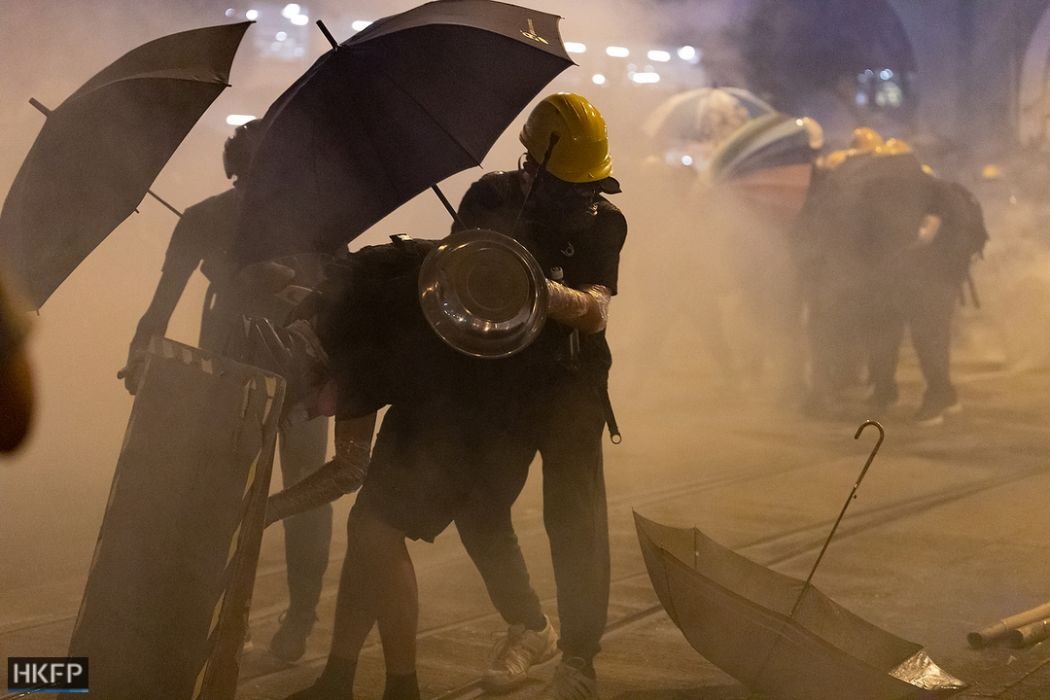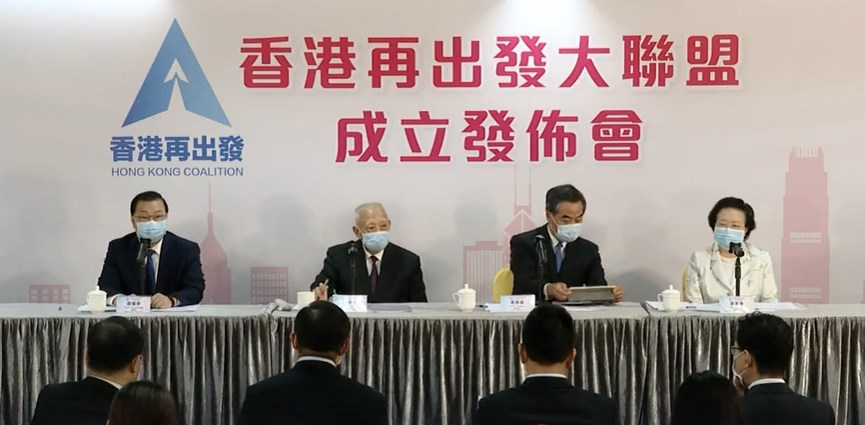Angry and frustrated over its inability to control the people of Hong Kong, the Chinese Communist Party is inadvertently exposing its weaknesses by lashing out with displays of strength.
The Party’s problem is that it keeps pressing buttons that simply do not work. It was thought in Beijing, for example, that the Hong Kong protests could be brought to a halt by the mass arrest and intimidation of demonstrators but, instead, they kept coming.

Then the authorities tried more targeted intimidation by arresting prominent leaders of the democracy movement on whatever pretext was to hand. But this too did not work because the leaders refused to be cowed and others quickly stepped forward to fill their shoes when they were taken away.
Intimidation of academics, teachers, journalists — the list is endless — has also failed to work because people have lost their fear.
The Party made a bold effort to change the entire narrative of the protests by declaring that they had nothing to do with democracy and were in reality all about economic inequality. The Quislings echoed this message with enthusiasm but it fell quite flat everywhere else.
Tacitly acknowledging the failure of this tactic the Party ordered a change of track and declared that what was at stake was a struggle between the forces of light and the dark forces of violence.

Henceforth all protesters were to be known as rioters, all demonstrations were to be labelled as acts of civil disorder and in case anyone missed the point the police were dispatched to discover alleged weapons caches and bomb making factories.
Every small act of violence was seized upon as evidence of Hong Kong being overwhelmed by terrorism. With that picture in mind the authorities set about bringing in draconian anti-terrorist legislation.
Some of this new narrative gained traction but, as trust in government was so low and trust in the police even lower, the claims of terrorism failed to rise above the level of partisan debate.
Meanwhile, the Party, which had become accustomed to enjoying great success in the international arena by brandishing China’s economic progress and dangling offers of aid to win allies, suddenly found itself panned by both governments and citizens around the world declaring their support for Hong Kong’s protesters.

The Party’s first response was to threaten anyone they were in a position to threaten for supporting the protests, but as the tide of sympathy for Hong Kong grew, the grey men in Beijing started behaving like petulant teenagers declaring that the rest of the world was treating them unfairly.
Echoing the sad Millwall Football Club supporters whose famous chant us, “no one likes us but we don’t care”, the Party made a big but unconvincing show of not caring.
Torn between wanting to be loved overseas, and the paranoia that has afflicted every dictatorship in history, the Party then came to the conclusion that the reason the rest of the world had turned against it was that dark international forces were in fact controlling and initiating the Hong Kong protests.
Yet again the Quislings enthusiastically took up the cry of “foreign meddling” but everyone else simply shrugged and asked whether they had lost the plot.
It might be imagined that the Party could at least rely on its own people to clear up this mess but a large part of its frustration emanates from a realisation of the poor material it has to work with here.

Every single handpicked Chief Executive has spectacularly messed up on the job (Donald Tsang less so than the rest) but none has performed worse than Carrie Lam. And, even within the Mainland’s own bureaucracy, officials have had to be moved around as dissatisfaction with their blundering grew in Beijing.
The net result is that the Party has brushed aside its cyphers in Hong Kong and taken matters into its own hands. It has taken to issuing all manner of statements and edicts directly because it no longer trusts these hapless intermediaries to get the message across.
However it is not just the handpicked Hong Kong government officials that exasperate the bosses in Beijing. They are also at their wits end as to how to make the leaders of the pro-China camp perform more effectively.
Generally speaking all they can get them to do is to do more of what has failed in the past. A good example of this is the recently launched ‘Revive Hong Kong’ campaign, led by the entire galaxy of familiar waxworks who have launched any number of similar campaigns, without success.

Were it the case that this farce was merely amusing we could all have a good chuckle. However, what is now emerging is something infinitely more worrying.
Like a caged wild animal the Party has taken to clawing at the bars and is threatening to burst out of the cage in order to seek bloody revenge. There is a dangerous mood up in Beijing leading the leadership to believe that Hong Kong’s democracy movement can be crushed by brute force.
However, as Medgar Evers, the great American civil rights leader, said, “you can kill a man but you can’t kill an idea”. Evers was assassinated but the movement for civil rights was not deterred by his death, on the contrary it grew stronger and achieved most of the objectives he held dear.
